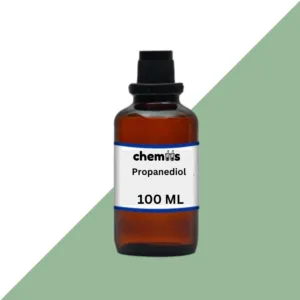Oil Dill, also known as Dill Seed Oil, is an essential oil extracted from the seeds of the dill plant (Anethum graveolens). This oil is pale yellow to colorless, with a sweet, slightly spicy, and aromatic fragrance. Oil Dill is valued for its versatility and numerous applications in various industries such as food, cosmetics, and alternative medicine. Known for its digestive properties, it has been used traditionally to relieve indigestion, gas, and bloating, as well as in skin care formulations and aromatherapy practices.
It has a history of medicinal use for treating a variety of ailments, thanks to its carminative, anti-inflammatory, and antimicrobial properties. Additionally, it is used in culinary practices for flavoring dishes and in the creation of pickles.
Applications
1. Culinary Uses
Oil Dill is widely used in the food industry for its aromatic flavor and digestive properties. It is a popular ingredient in pickling recipes, salad dressings, sauces, and seasoning blends. The oil adds a warm, spicy flavor to dishes and can be used sparingly for flavor enhancement.
- Pickling: Dill oil is essential in the production of pickles, providing the characteristic flavor.
- Seasoning and Flavoring: Commonly used in spice blends for seasoning meats, soups, stews, and salads.
- Beverages: Occasionally used in small quantities in herbal teas and health drinks for its digestive benefits.
2. Medicinal and Therapeutic Uses
Oil Dill has a long history of use in traditional medicine, primarily for its digestive support and soothing properties. It is commonly used in aromatherapy and as a natural remedy for various ailments.
- Digestive Health: Known for its carminative properties, Dill oil can help alleviate gas, bloating, and indigestion.
- Antimicrobial: Due to its natural antimicrobial properties, it can help fight off infections, particularly when used in topical applications.
- Calming and Relaxation: Dill oil’s soothing effects make it useful in aromatherapy for stress relief, anxiety, and promoting restful sleep.
3. Skin Care
Oil Dill is also utilized in cosmetics and personal care products, particularly for its anti-inflammatory and antiseptic properties. It can be found in facial creams, serums, and lotions that aim to soothe irritated skin and reduce redness.
- Soothing: Dill oil can be applied topically in diluted form to calm irritated skin or reduce the appearance of minor burns, rashes, or insect bites.
- Anti-Aging: Its antioxidant properties help protect the skin from premature aging by neutralizing free radicals.
4. Aromatherapy
Oil Dill is used in aromatherapy to promote mental clarity, reduce anxiety, and relieve emotional stress. When diffused, its calming aroma helps create a peaceful atmosphere and can improve concentration.
- Mood Enhancement: Inhaling the scent can help uplift the mood and encourage a relaxed state.
- Stress Relief: Often used to reduce tension and anxiety, particularly in high-stress environments.
Safety and Handling
Precautions
Oil Dill is generally safe when used in small amounts and under appropriate conditions. However, it is important to follow safety guidelines to avoid any adverse reactions.
- Skin Sensitivity: While Dill oil is not typically an irritant, it should always be tested on a small patch of skin before applying more extensively. If irritation occurs, discontinue use immediately.
- Dilution: Always dilute Oil Dill with a carrier oil (such as coconut or jojoba oil) before applying topically, as it is a concentrated substance.
- Pregnancy and Nursing: Pregnant and nursing women should avoid using Dill oil without consulting a healthcare provider due to the potential hormonal effects.
- Children: Not recommended for use in children under 2 years of age. Always consult a pediatrician before using essential oils on young children.
First Aid Measures
- Skin Contact: If Dill oil comes in contact with the skin and irritation occurs, wash the area immediately with soap and water. Apply a mild lotion if needed.
- Eye Contact: Rinse the eyes with clean water immediately for at least 15 minutes. If irritation persists, seek medical attention.
- Inhalation: If inhaled in excess, move to fresh air immediately. If symptoms persist, consult a medical professional.
- Ingestion: In case of accidental ingestion, do not induce vomiting unless directed by a medical professional. Seek immediate medical attention.
Storage
- Store Properly: Keep Oil Dill in a tightly closed container in a cool, dry, and dark place to prevent degradation from light and heat.
- Shelf Life: Use within 1-2 years for optimal potency.
- Avoid Contamination: Keep the product away from open flames, heat sources, and avoid contact with water.







Reviews
There are no reviews yet.